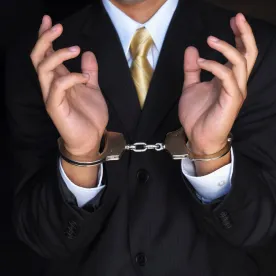On Aug. 9, 2019, in United States v. Ng Lap Seng, the Second Circuit rejected a real estate developer’s argument that the heightened standard for bribery cases set by the U.S. Supreme Court in McDonnell v. United States 1 broadly applies to the Foreign Corrupt Practices Act (FCPA) and another federal bribery statute, 18 U.S.C. § 666. In affirming the developer’s conviction, the court held that the government does not need to satisfy the strict “official acts” element established by McDonnell in order to prove an FCPA or Section 666 violation.
The McDonnell Standard
In McDonnell, the former governor of Virginia was convicted of honest services fraud and Hobbs Act extortion based on his alleged acceptance of bribes. The Supreme Court determined whether McDonnell’s alleged actions “arranging a meeting, contacting another public official, or hosting an event – without more – concerning any subject, including a broad policy issue such as Virginia economic development,” qualified “as ‘official acts’” as defined by the federal bribery statute, 18 U.S.C. § 201.
Holding that McDonnell’s actions did not qualify as official acts, the Supreme Court articulated a two-part test to satisfy the “official acts” requirement under Section 201. First, the government must identify a “question, matter, cause, suit, proceeding or controversy” that is “pending” or “may be brought before [a] public official” and involves a “formal exercise of governmental power” similar in nature to a “lawsuit, hearing, or administrative determination.” Second, the government must prove that the public official made a decision or took action on the pending matter or agreed to do so. In formulating this standard, the Supreme Court significantly narrowed the “official acts” requirement to clear-cut quid pro quo scenarios, finding that “[s]etting up a meeting, talking to another official, or organizing an event (or agreeing to do so),” without more, are not official acts in themselves.
United States v. Ng Lap Seng
Ng Lap Seng, a Chinese national and real estate developer, paid two United Nations ambassadors more than $1 million to secure a U.N. commitment to use Ng’s Macau real estate development as the site for an annual U.N. conference. Following a five-week jury trial in the Southern District of New York, Ng was convicted of, among other things, paying and conspiring to pay bribes and gratuities in violation of the FCPA 2 and Section 666, federal program bribery.3
Ng appealed his conviction on multiple grounds. On the FCPA and Section 666 convictions, Ng argued that the McDonnell “official acts” standard applied to these statutes. The jury instructions did not include a definition of “official acts” using McDonnell’s language and as such, Ng sought to overturn his convictions.
The Second Circuit declined to extend McDonnell’s “official acts” requirement under Section 201 to the other federal bribery statutes. The court explained that while every bribery statute requires a quid pro quo, Congress has defined the particular quids and quos differently for each bribery statute. The action taken by the official need not be an “official act” as defined by Section 201 and interpreted by McDonnell.
The court held that neither the FCPA nor Section 666 mirrors Section 201’s “official acts” definition. It explained that Section 666 broadly prohibits bribery “in connection with any business, transaction, or series of transactions of [an] organization, government, or agency” without placing “any definitional limits on the business or transactions to be influenced.” Further, the court found that the FCPA prohibits giving anything of value in exchange for four specified actions: i) influencing an act or decision of a foreign official, ii) inducing a foreign official to do or omit to do any act, iii) securing any improper advantage, or iv) inducing the foreign official to influence an act of a foreign government. Like Section 666, the court noted that none of these prohibited actions limit their definitions akin to that for “official acts” in Section 201. Accordingly, the court affirmed Ng’s conviction, holding that the McDonnellstandard does not pertain to bribery proscribed by Section 666 or the FCPA.
Impact of Ng
The Second Circuit joins the Third, Fifth, Sixth, and Eighth Circuits in interpreting the McDonnell “official acts” standard narrowly and declining to extend the decision to other anticorruption statutes. This is the first circuit court decision that considers the application of McDonnell to the FCPA. As a result, the FCPA supplements a growing list of anticorruption statutes exempt from the strict “official acts” hurdle required by Section 201. We expect prosecutors will continue the trend of choosing to charge defendants under the FCPA and other anticorruption statutes to avoid the rigorous “official act” standard imposed by McDonnell.
1136 S. Ct. 2355 (2016).
2 The FCPA broadly prohibits U.S. nationals or individuals in the U.S. from paying bribes to foreign government officials for the purpose of obtaining or retaining business.
3 Section 666 is aimed to broaden the scope of anti-bribery statutes. Unlike Section 201, it applies not only to federal elected officials, but to an agent of any state or local government, so long as the state or local government has received at least $10,000 in federal benefits. 18 U.S.C. § 666.





 />i
/>i
